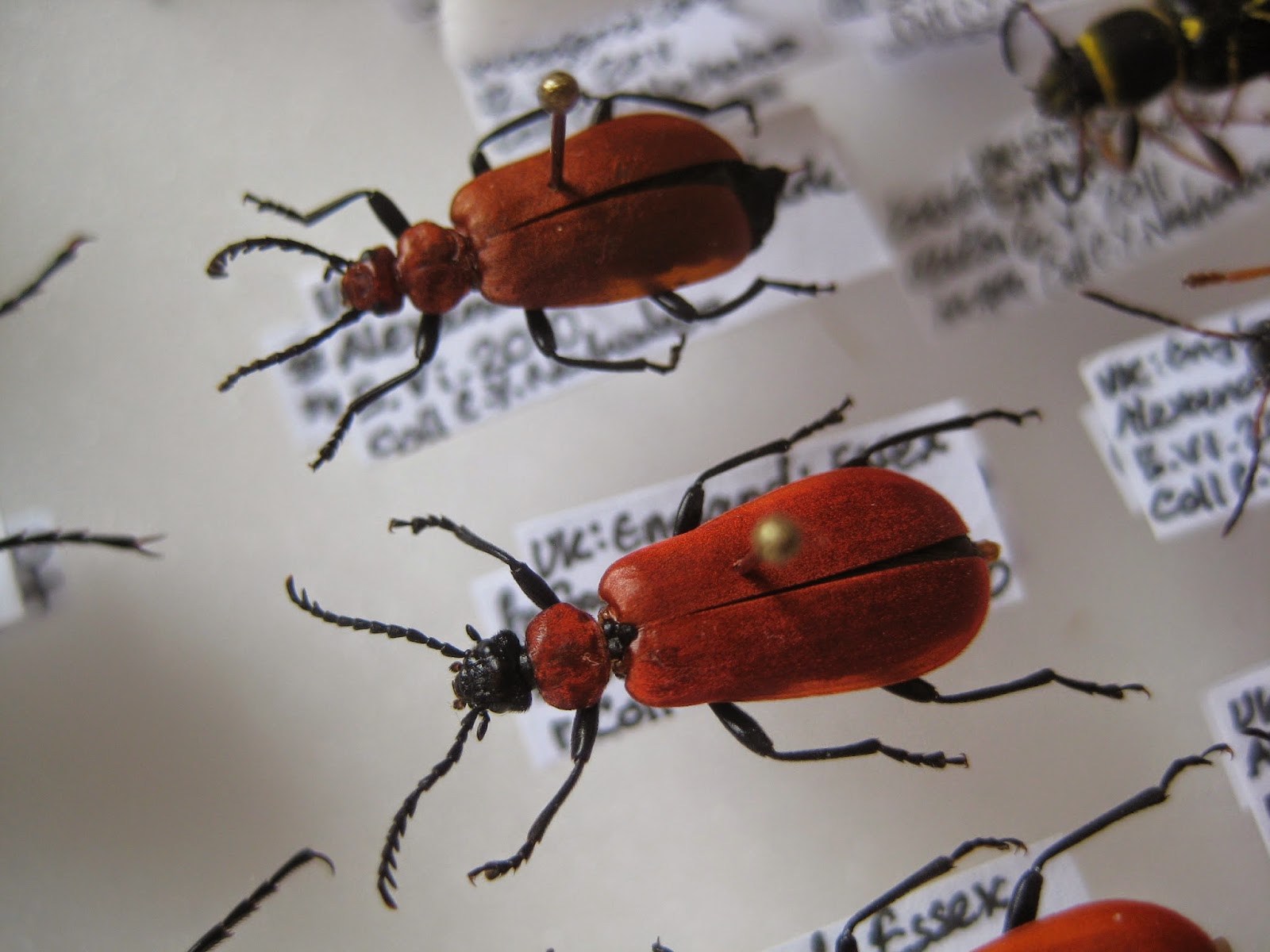Pyrochroa
coccinea
17-21mm
Late April
to July
The vibrant
velvety red elytra and pronotum make this beetle stand out when at rest on tree
trunks or feeding at flowers. The large flattened larvae live under loose bark
where they predate smaller invertebrates. The larvae are easily recognised by
the sturdy forked projection at the tail end. They remain under the bark to
pupate and emerge as adults in late spring.
The head and
serrated antennae are black, as well as the legs and underside. The hind-wings
are also very dark and the beetle flies regularly in the sun across woodland
paths.

Both sexes
look very similar, but females are often slightly broader. The elytra are
fairly soft and flexible.
When handled
or alarmed the cardinal beetle will emit a pleasant sweet odour.
Fairly
common and widespread in southeast England and Wales, occurring most frequently
in deciduous forest and parkland.
P.serraticornis (top, in the photo above) is the most similar
species but easily distinguished by its red head, and the overall colour is
often more orange than the vivid crimson of P.coccinea.
No comments:
Post a Comment